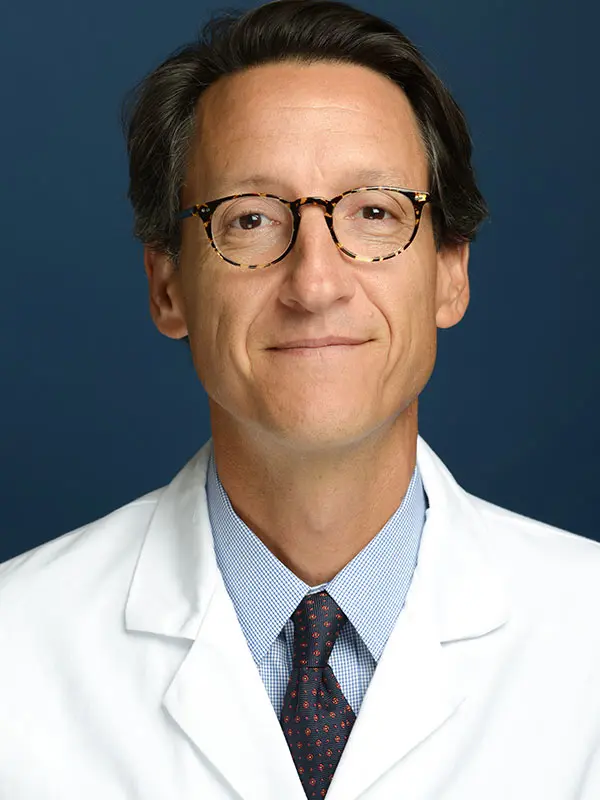In the modern world of medicine and surgery, where advancements in technology and scientific discovery drive the continuous improvement of patient care, the role of the physician-scientist has become increasingly significant. These professionals translate laboratory discoveries into innovative treatments and surgical techniques that save and improve lives.
“Training and producing physician-scientists is essential to ensuring the medical field continues to advance and address the complex challenges of human health. However, becoming a physician-scientist poses financial challenges for students—a problem that threatens to hinder advancements in science and medicine,” says Eric Genden, MD, MHA, FACS, the Dr. Isidore Friesner Chair of Otolaryngology, Icahn School of Medicine at Mount Sinai.
Mount Sinai has a solution to this dilemma available to current ear, nose, and throat (ENT) students, residents, and fellows: the Surgeon-Scientist Training Program.
The Arduous Path to Becoming a Physician-Scientist
Physician-scientists are unique in that they are trained both as clinicians and as researchers. This dual role allows them to not only diagnose and treat patients but also to conduct research aimed at improving medical practices, discover new therapies, and understand disease mechanisms at a molecular or systemic level.
“The ability to straddle both clinical and research realms is crucial in transforming scientific lab findings into treatments that help patients, ensuring that research discoveries have practical, real-world applications,” says Dr. Genden.
In medicine and surgery, physician-scientists are often at the forefront of pioneering new treatments. For instance, advancements in immunotherapy, gene therapy, and precision medicine are often driven by individuals who understand both the biological basis of disease and the clinical challenges of treatment. Their insight into both research and patient care enables them to identify unmet medical needs and to design studies that can address those needs. This ability to integrate scientific inquiry with clinical practice is what makes physician-scientists invaluable in advancing the field of medicine.
“As we unveil this transformative program, I am confident its impact will be profound.”
Eric Genden, MD, MHA, FACS
Despite the significant role of physician-scientists in medical innovation, identifying and training these individuals has become a challenge that weakens the infrastructure of health care advancement.
“Talented physician-scientist candidates are typically identified during their medical school training,” explains Dr. Genden. “Once students commit to this path, they will embark on a combined MD/PhD training program or enter specialty residency training with a planned two-year research sabbatical. All told, this brings the educational commitment to as many as 14 years.”
Funding the research-training program represents one barrier. The second challenge is funding the research career start-up period.
“Once physician-scientists have completed their training, it often takes three years to generate the preliminary data required to secure funding through the National Institutes of Health,” says Dr. Genden. “Funding this start-up period is crucial and, without funding, physician-scientists often lose their way, leading to the shortage of these much-needed scientists.”
Introducing the Surgeon-Scientist Training Fund
Through the visionary leadership of Dr. Genden, Mount Sinai is launching a groundbreaking surgeon-scientist training program, made possible by the generosity and foresight of philanthropists who provided significant funding to establish this program.
“The Surgeon-Scientist Training Program will fund physician-scientists during their initial training period, providing the financial support needed for their research endeavors and creating a sustainable resource to train our most promising academicians,” Dr. Genden says. “As we unveil this transformative program, I am confident its impact will be profound. We expect it to become one of Mount Sinai’s most significant investments in the future of health care innovation, and we are grateful for the support of our lead donors who are making it possible.”
Training physician-scientists is necessary to the ongoing advancement of medicine and surgery and driving innovations that improve patient care and outcomes. Despite the challenges physician-scientists face, the Surgeon-Scientist Training Program is an important step forward in training the physician-scientists who will address complex diseases, develop new treatments, and push the boundaries of what is possible in health care.
“By investing in the training and support of physician-scientists, the medical field can continue to make groundbreaking advancements that benefit patients worldwide,” Dr. Genden says.
Featured

Eric M. Genden, MD, MHA, FACS
Professor and Chair of Otolaryngology – Head and Neck Surgery
